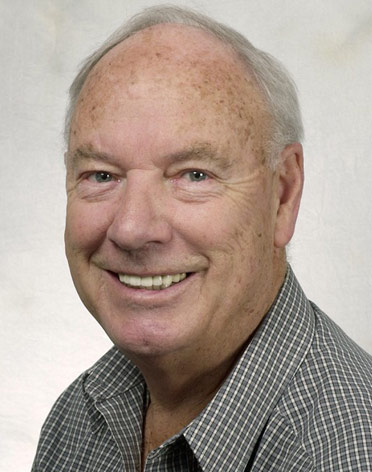
Professor Donald Metcalf AC FAA FRS was born 26 February 1929 in Mittagong, New South Wales. He spent most of his childhood moving between small country towns to accommodate his father’s work in education; placed into school at the age of three, Metcalf learned to read and write unusually early and progressed rapidly through his studies, completing high school at 16. Upon graduation he enrolled in Sydney University’s medical program, in the first course offered after World War II. Resources were limited but the instruction was excellent, and Metcalf developed a deep interest in haematology and leukaemia research that would continue throughout his life.
In 1954 Metcalf was awarded a Carden Fellowship to research cancer, which offered the opportunity to join the prestigious Walter and Eliza Hall Institute (WEHI). There he was put to work as a virologist, researching vaccinia for two years before slowly branching off into his own research in leukaemia and haematology.
Metcalf left Australia in 1956 to take up a post as a research associate at Harvard Medical School, where he was influenced by Dr Jacob Furth’s experiments in cancer biology. Two years later Metcalf returned to WEHI; by 1965 he was Head of the Cancer Research Unit as well as Deputy Head of the Institute. When a new technique of growing blood-forming cells using a colony stimulating factor (CSF) was discovered, Metcalf immediately implemented it into his research.
Over the next 20 years, Metcalf and his multidisciplinary team identified four CSF hormones that stimulated the production of white blood cells. The cells could then be isolated, cloned, and reinjected into the host to help battle infection. This discovery revolutionised cancer treatment and transplant medicine, benefiting 20 million cancer patients since its introduction.
Metcalf’s election as a Fellow of the Australian Academy of Science in 1969 was the first of many notable accolades—he later became a Fellow of the Royal Society and received numerous awards including the Companion of the Order of Australia, the Royal Medal of the Royal Society, the Centenary Medal, and the Prime Minister's Prize for Science. In 2002, he was honoured on a stamp in Australia Post’s Australian Living Legend series.
Although he officially retired in 1996, Metcalf continued studying blood cell regulation at WEHI. In August 2014, Metcalf was diagnosed with metastatic pancreatic cancer; he continued his research at home, installing his microscope on his dining room table.
Metcalf passed away on 15 December 2014, and is survived by his wife Josephine, children Katherine, Mary-Ann, Penelope and Johanna, and grandchildren.
Interview with Donald Metcalf, 1998
Sir Henry Harris FAA FRS was born 28 January 1925 in Russia, immigrating to Sydney with his family when he was four years old. Upon graduating from Sydney Boys High School in 1941, he enrolled at Sydney University, receiving an undergraduate degree in Modern Languages in 1944 before commencing further studies for a medical degree.
Harris graduated in 1950 and that same year married Alexandra Brodsky whose family was also of Russian origin but who came to Australia after the Second World War from Belgium. Two years later, Harris was awarded an Australian National University scholarship to attend the Sir William Dunn School of Pathology at Oxford University. There he studied under the supervision of Professor Howard Florey. He received a DPhil in 1954 before becoming Director of Research for the British Empire Cancer Campaign at the Dunn School.
Henry Harris succeeded Howard Florey as Professor of Pathology at the Dunn School, where he carried out his most influential and pioneering research.
Following a year as Visiting Scientist at the National Cancer Institute in the USA, Harris took up a post as head of cell biology at the John Innes Institute in 1960; three years later, he was elected to succeed Florey as Professor of Pathology at the Dunn School. It was following this appointment that Harris carried out his most influential and pioneering research, particularly his discovery of artificial cell fusion. Fused cells can contain multiple separate nuclei or form hybrid cells with a single nucleus; using a hybrid of cancer and normal cells, Harris collaborated with George Klein to demonstrate malignancy suppression, a discovery that eventually led to the identification of tumour suppressor genes.
In 1979, Harris was appointed Regius Professor of Medicine at Oxford University, a prestigious post he accepted with the stipulation that he could continue his experimental research as head of the Dunn School. This agreement proved well worthwhile when Harris’s team discovered the tumour marker Ca antigen in 1982.
Harris received numerous honours and awards, including selection as a Fellow of the Royal Society in 1968, followed by election to the Australian Academy of Science as a Corresponding Member in 1983. He was knighted in 1993. A prolific author, Harris produced numerous high quality papers during his career and continued writing after his retirement in 1992, including books on cell biology, cancer, and academic life.
Harris passed away on 31 October 2014 and is survived by his wife Alexandra and their three children, Paul, Helen and Ann.
Professor Michael Raupach FAA FTSE passed away in early February. Professor Raupach, a highly valued member of the Academy’s Council, was Director of the ANU’s Climate Change Institute and a champion of the science of climate change. An obituary for Professor Raupach will be included in our next newsletter.
© 2025 Australian Academy of Science